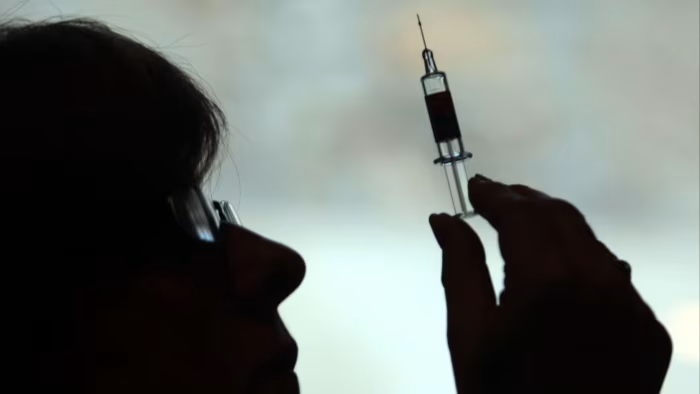Unlock the Editor’s Digest for free
Roula Khalaf, Editor of the FT, selects her favourite stories in this weekly newsletter.
Vaccine-maker Moderna has become the most shorted company in the S&P 500, with its share price slumping to its lowest level since before the Covid-19 pandemic as people skip jabs.
After months of anti-vax rhetoric from US health secretary Robert F Kennedy Jr, the number of Americans getting Covid shots is down about 24 per cent from this point last year, according to a November 21 report from Jefferies, an investment bank.
Despite plenty of supply, analysts have said vaccine fatigue was contributing to lower Covid vaccination rates in the past few months compared with 2024 or 2023.
“It’s not a huge surprise vaccinations have not picked up as they have in the last two years,” said Seema Shah, medical director of epidemiology and immunisation for San Diego county.
Vaccine shipments were delayed this year, prompting paediatric healthcare providers to wait to administer shots until supplies were stocked, she said.
“Those [delays] definitely caused a slow pick up compared to the last two years,” she added.
Boston-based Moderna has been the S&P 500’s most shorted stock since the end of September, according to S3 Partners. Short sellers had about $622mn of unrealised profits in the company in 2025, S3 said. Moderna shares closed at $23.72 on Friday, down 43 per cent so far this year, and matching its share price in February 2020.
When it joined the S&P 500 index in July 2021, Moderna’s fortunes were flourishing. That year, the US government bought hundreds of millions of Moderna Covid vaccines. Chief executive Stéphane Bancel became a multi-billionaire. Moderna’s 2021 operating margin was higher than Warren Buffett’s Berkshire Hathaway.
But Moderna has been unprofitable since 2023, well before Kennedy brought his vaccine scepticism to Washington this year. Its revenues have dropped by more than 80 per cent from 2021.
At an investor day on Thursday, Moderna executives touted a turnaround starting in 2026. The company is expanding sales in markets outside the US and is racing to apply its mRNA technology to attack cancers.
In an interview with the Financial Times, Moderna’s chair, Noubar Afeyan, said the short interest in Moderna’s stock had not changed the company’s behaviour.
“We are concerned about a lot of unknowns. I don’t know that the shorting is adding to the unknowns,” said Afeyan, who is chief executive of Flagship Pioneering, a Boston investment firm that founded Moderna.
People should not forget the detrimental effects of Covid-19, he said, adding that more than 10mn people were living with the long-term symptoms of the virus.
“People have lost the narrative that they are essentially a source of infection for other people,” he said.
“Why should you follow traffic laws? You don’t just put yourself in harm’s way. This is a transmissible disease.” And by not getting vaccinated, “you are not just an innocent bystander but a culprit”.
The US health secretary is a long-standing vaccine sceptic. In June, Kennedy fired all the members of a top vaccine advisory committee, and two months later limited the government’s recommendations for Covid shots.
Last week, the Centers for Disease Control and Prevention, which is part of Kennedy’s department, changed its website to say: “Studies have not ruled out the possibility that infant vaccines cause autism.”
In Washington, Moderna has spent more than $1.2mn on lobbying already this year, a record amount for the company.
Because of its exposure to vaccines, Moderna did not make a great acquisition target for giant pharmaceutical companies, said Myles Minter, an analyst at William Blair.
“You need to see some pretty compelling oncology data” for an acquirer to get interested in buying Moderna, he said.
While big drugmakers were looking to refill their product offerings, “I’m not convinced that declining Covid vaccine revenue is the way to fix that for a big pharma” company, he added.
For now, Moderna said sales to Australia, Canada and the UK would help it to increase revenues by up to 10 per cent next year. In 2027, a Pfizer deal to sell Covid vaccines to the EU expires, opening the European market for Moderna to compete.
Ultimately, Moderna is hoping that its vaccines can generate enough cash to fund its cancer work.
“We see a turning point in our finances and we believe we have a line of sight to break even in 2028,” said Jamey Mock, Moderna’s chief financial officer.
